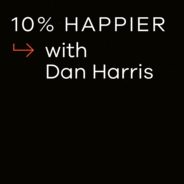This episode features Evan Thompson, author of the book Why I Am Not a Buddhist. Evan Thompson is a writer and professor of philosophy at the University of British Columbia in Vancouver. His work and research focuses on the nature of the mind, the self, and human experience combining cognitive science, philosophy of mind, phenomenology, and cross-cultural philosophy, particularly Asian philosophical traditions. This episode explores: Thompson's beef with what he calls "Buddhist exceptionalism," "Buddhist modernism," and "neural Buddhism;" why Buddhism is so attractive in the Western world; our culture's need for validation of meaning through science; McMindfulness and the Western obsession with individualism; the dialogue between science and Buddhism; what the Buddha meant by the word dukkha, or suffering; and Evan lays out his case for an alternative to Buddhist exceptionalism, which he calls "cosmopolitanism." Full Shownotes: https://www.tenpercent.com/podcast-episode/evan-thompson-417

Gesundheit, Wellness & BeautyLeben & Liebe
10% Happier with Dan Harris Folgen
Self-help for smart people. World-class insights and practices from experts in modern science and ancient wisdom. Hosted by veteran journalist and best-selling author, Dan Harris.
Folgen von 10% Happier with Dan Harris
947 Folgen
-
Folge vom 09.02.2022Why I'm Not a Buddhist | Evan Thompson
-
Folge vom 07.02.2022Hinduism 101 | Swami TyaganandaOne of the most consistent requests we get from listeners is to explore non-Buddhist forms of meditation. That's what we're going to do with this episode. Our guest is Swami Tyagananda, who has been a Hindu monk since 1976, and is now the Hindu chaplain both at MIT and Harvard. This conversation explores: the basics of Hinduism, including its history, and its approach to prayer and meditation; letting go; karma; rebirth (and how and why to escape it); the deep connections between the Buddhist and Hindu traditions; Swami Tyagananda's contention that all prayers are answered; and a recipe for reducing stress and anxiety. Swami Tyagananda also shares his thoughts about how to deal with our sense of not-enoughness or incompleteness and he provides a new way of thinking about the trickiest of all Buddhist concepts: annata, or the idea that the self is an illusion. Full Shownotes: https://www.tenpercent.com/podcast-episode/swami-tyagananda-416
-
Folge vom 02.02.2022Why Self-Hatred Makes No Sense | Matthew BrensilverThis episode, with Matthew Brensilver, explores a compelling Buddhist question: does self-hatred, or self-love, make sense if the self is an illusion? Matthew Brensilver, PhD, is a clinical social worker and experienced teacher of meditation retreats. He also worked at an organization called Mindful Schools, which teaches teachers how to teach meditation. This episode also explores: how and why to view your anger with skepticism; the relationship between self-love and personal ethics; what to do if you think you're a good person but have no interest in changing your behavior to get better; how to handle a nagging sense of moral un-justifiability; and how Matthew has arrived at a place of relative peace with his own mortality. Full Shownotes: https://www.tenpercent.com/podcast-episode/matthew-brensilver-415
-
Folge vom 31.01.2022What We Can Learn About Happiness from Babies | Alison GopnikDr. Alison Gopnik is a psychologist at UC Berkeley and one of the world's leading experts in cognitive development. She is also the author of several books, including The Philosophical Baby and The Gardener and the Carpenter. This episode with Dr. Gopnik explores two big and fascinating themes. The first is enlightened self-interest. We all want to be happy. Every sentient being has that in common. One of the most successful, although counterintuitive, strategies for getting happier is to get out of your own head and help other people. Alison argues that caring is a skill that we can all develop, and there are ways to scale it so that we can improve our entire society. The second, and related theme, explores what we can all learn about happiness from babies. In this episode Alison discusses: the "learning trap" common to adults that four-year-olds can help us avoid; the potential role of meditation in helping us see the world and solve problems more like children; the difference between our spotlight attention and children's lantern consciousness; the strategy of solving problems by not trying to solve problems; and her critique of our modern conception of parenting, and what she thinks should replace it. Full Shownotes: https://www.tenpercent.com/podcast-episode/alison-gopnik-414
